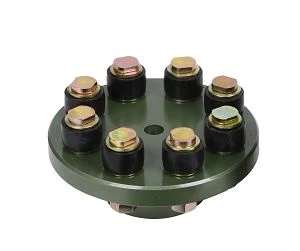“`html
Introduction to Flexible Coupling
Flexible couplings are essential components in machinery, designed to transmit torque while accommodating various types of misalignment between shafts. They differ significantly from rigid couplings by providing flexibility, reducing vibration, and offering tolerance to misalignments. This guide explores the differences between rigid and flexible couplings, highlighting the applications and advantages of flexible couplings.
Key Features of Flexible Coupling
- Accommodates Misalignments: Flexible couplings can adjust to axial, radial, and angular misalignments without imposing undue stress on connected equipment.
- Vibration Damping: These couplings can absorb vibrations and shocks, thereby protecting the machinery from potential damage.
- Torque Transmission: Despite their flexibility, they effectively transmit torque between shafts, ensuring the smooth operation of machinery.
Applications and Advantages
Flexible couplings are utilized in a wide range of applications, from simple machinery to complex industrial systems. Their design and functionality make them particularly suitable for scenarios where misalignments are anticipated, and vibration damping is required.
Why Flexible Coupling?
Advantages of Using Flexible Coupling
- Alignment Tolerance: They offer greater tolerance to misalignment compared to rigid couplings, reducing the risk of wear and tear.
- Reduced Maintenance: By mitigating the effects of vibration and misalignment, flexible couplings lead to lower maintenance costs and downtime.
- Easy Installation: Flexible couplings are generally easier to install and do not require precise alignment, saving time during machinery setup.
- Extended Equipment Life: The protective effects against vibration and shock contribute to the extended lifespan of the machinery components.
- Versatility: They are versatile and can be used in various applications, including pumps, fans, and conveyors, among others.


Working Principle of Flexible Coupling
Flexible couplings transmit torque through elastic elements, such as rubber or metal springs, that flex under load. This flexibility allows the coupling to compensate for misalignment, absorb shocks, and dampen vibrations. The design ensures that the connected machinery operates smoothly, with minimal stress on the components.
Choosing the Right Flexible Coupling
Selecting the appropriate flexible coupling involves considering several factors to ensure optimal performance and longevity of your machinery. Here are key considerations:
- Types of Misalignment: Assess the types and degrees of misalignment (axial, radial, angular) your application might encounter.
- Torque Requirements: Determine the torque requirements, including peak torque, which the coupling must accommodate.
- Application Environment: Consider the operating environment, such as temperature, exposure to chemicals, and presence of moisture.
- Size and Space Constraints: Evaluate the space available for the coupling to ensure a proper fit.
- Material Compatibility: Choose materials that are compatible with the operating environment to avoid premature failure.
Maintenance of Flexible Coupling

Maintaining flexible couplings is crucial for the longevity and efficiency of machinery. Regular inspections should check for wear, proper alignment, and tightness of components. Lubrication, where necessary, should be performed according to the manufacturer’s recommendations. Timely maintenance not only extends the life of the coupling but also ensures the machinery operates at optimal efficiency.
About HZPT
Established in 2006, HZPT is a leading manufacturer and exporter specializing in the design, development, and production of couplings. With a dedicated design and R&D team for over 16 years, we customize products to meet global customer requirements. Our comprehensive quality control system spans from raw materials to finished products, ensuring all our products are CE and TUV certified. At HZPT, customer satisfaction is our pursuit. We offer a wide range of mechanical industry couplings, including radial elastic couplers, tire couplers, universal couplers, and more, renowned in Europe and America for our reputation. We provide top-quality products, superior service, and competitive pricing, making HZPT your best choice for couplings. We look forward to cooperating with you and establishing successful business relationships worldwide.
“`